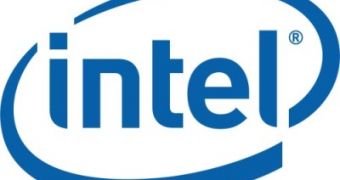Santa Clara, California-based Intel is expected to unveil a series of new computer processors, as part of the company's lineup of ultra-low-voltage CPUs, specifically designed for ultra-thin notebook products. These new processors will be paired with the GS45 IGP chipset and will likely be featured in some of the upcoming ultra-thin portable computer systems designed by companies such as MSI, HP or ASUS.
According to a recent news article on Digitimes, the upcoming processors will boast the company's Core 2 Duo processor technology, but will come in an ultra-low-voltage package. These processors will be designed for some of the upcoming ultra-thin portable computer systems, as Intel is planning to expand its support for the new ultra-thin laptop computer form factor.
By the end of March the chip maker will intro two new CPUs, namely the SU9600 and the SU3500, with clock frequencies of 1.6GHz and 1.4GHz, respectively. The higher-clocked SU9600 will be priced at US$289 in 1000-unit tray quantities, while the SU3500 will become available for about US$262. The two new processors, which will join Intel's existing lineup, will be paired with the GS45 IGP chipset.
According to further details provided by Digitimes, the global leading chip maker is planning to separate its ULV platform, providing its customers with three levels of performance. The first will consist of Intel's ULV Celeron processor and will be designed for the entry-level market segment. The ULV Core 2 Solo and Core 2 Duo processors will be part of Intel's single-core performance and dual-core performance offering, enabling users to take advantage of the level of performance they require, while also maintaining an acceptable budget.
Intel's new low-voltage processors will be featured in some of the upcoming ultra-thin computer systems designed by leading PC vendors, including MSI, HP and ASUS. MSI has already showcased its first design with the introduction of the new X-Slim series, earlier this year at CES.

 14 DAY TRIAL //
14 DAY TRIAL //